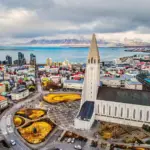When we're alone in an unfamiliar environment, it's natural to feel more vulnerable. However, with a few simple measures, you can significantly reduce your risk of being a victim of robbery or theft.
**One of the first precautions you should take is to remain aware of your surroundings**. Always be aware of your surroundings, observe the people around you, and avoid excessive distractions, such as inattentive cell phone use. **Also, avoid displaying valuables or large amounts of cash in public places**. This can draw unwanted attention and make you an easy target.
It's also important to research your destination before traveling. Knowing the safest and most dangerous areas can help you better plan your stay. Check the city's crime rates and what measures are recommended to ensure your safety. Stay informed about common scams and tactics used by thieves and pickpockets.

**Avoiding unnecessary attention is essential.** Try to blend in with the locals, avoiding flashy clothing and behavior that might indicate you're an unsuspecting tourist. **Use security accessories, such as locks for backpacks and suitcases, and keep your personal belongings close to you at all times.**
Another important tip is to use reliable and safe transportation. Choose regulated taxis or recommended transportation services. If you prefer to use ride-hailing apps, check the driver's identification and confirm that the vehicle details match those provided by the app. Avoid sharing personal information with strangers during your trips.
It's always a good idea to keep a copy of your travel documents. Make copies of your passport, ID card, and other important documents and keep them in a safe place. If any of these documents are stolen, this will make it easier to replace them and prevent further problems.
Also, remember to stay in touch with family and friends during your solo travels. Keep them informed about your plans and itineraries, and share your location whenever possible. This can be helpful in case of emergencies or if you need assistance.
By following these tips and adopt safety measures Simply put, you'll be better prepared to avoid robberies and theft during your solo travels. **Always remember to trust your instincts and prioritize your safety.** With proper planning and precautions, you can enjoy your adventures worry-free.
Research and Planning
Before traveling, it's essential to conduct thorough research on your chosen destination. This initial step will provide valuable information about the location's safety and the potential risks you may encounter during your stay. solo travel. Find out which areas are considered safe and which should be avoided, whether due to higher crime rates or poor tourist infrastructure.
Additionally, it's important to understand the main scams and tactics used by thieves and robbers in the region. Each destination has its own specificities, and knowing this information can help you prevent and avoid risky situations. Be aware of common practices such as distractions, purse and wallet theft, credit card scams, or even express kidnappings.
To ensure a safer trip, plan your route in advance. Make a list of the attractions you want to visit and research the best way to get to each one. Use map and transportation apps to find your way around and choose the safest and most reliable options. Having a well-structured plan will not only make your journey easier but also help you avoid risky situations.
Another important tip is to inform yourself about the busiest times and places with the highest crowds. Avoid walking alone in deserted or poorly lit areas, especially at night. Choose to walk on busy, well-lit streets or use safe transportation, such as regulated taxis or recognized ride-hailing apps.
In short, to avoid robberies and thefts when traveling solo:
- Conduct detailed research on the destination, identifying safe and risky areas.
- Learn about the main scams and tactics used by thieves and robbers in the region
- Plan your route in advance and make a list of the sights you want to visit.
- Use maps and transportation apps to find your way around and choose safe options.
- Avoid traveling in deserted or poorly lit areas, especially at night.
- Choose to walk on busy, well-lit streets or use safe means of transportation.
Security on arrival
Once you arrive at your destination, be sure to take some basic precautions. The first and most important tip is to avoid displaying valuables, such as jewelry or expensive electronics.These items attract the attention of potential thieves and pickpockets, making you an easy target. It's always best to keep these belongings in a secure and discreet location, such as a hotel safe or a zippered bag.
Also, be aware of your surroundings and avoid drawing unnecessary attention. Avoid making a fuss when arriving at a new place, especially if you are traveling alone. Keep a low profile and try to blend in with the local environment. This means avoiding flashy clothing or carrying items that make you stand out in a crowd.
Trust your instincts and be alert to any signs of danger. If something seems suspicious or you feel uncomfortable in a certain place, move away quicklyPrevention is always better than cure. Be aware of escape routes and stay informed about local emergency services.

Curiosity: The tricks of thieves around the world
In different parts of the world, thieves and pickpockets have developed specific tactics to target unsuspecting travelers. Some examples include:
- Distraction: A thief may try to distract you by asking for directions or spilling something on you, while an accomplice takes the opportunity to steal your belongings.
- Diversion of attention: A thief may create a chaotic situation, such as a fight or a deliberate fall, to divert your attention and allow another individual to take advantage of the opportunity to steal your items.
- Credit card scams: In some places, criminals use devices to clone credit cards or watch people enter PINs at ATMs. Be alert for any signs of tampering or suspicious individuals nearby.
Stay informed about common tactics used by thieves in the area you're visiting and be prepared to avoid falling for these scams.
Safe transportation
When traveling, it's important to choose safe transportation. Choose reliable taxi companies or use reputable ride-hailing apps. This choice can ensure your safety and peace of mind when traveling in an unfamiliar location.
When using public transportation, always be aware of your belongings. Keep your purse or backpack closed and keep valuables out of sight. Avoid crowds and beware of pickpockets, who may take advantage of distractions to steal your belongings.
Stay tuned:
- Keep your bag or backpack in front of you and closed;
- Avoid putting valuables in the back pockets of your pants;
- Be careful when using your cell phone in public places, avoiding displaying it conspicuously;
- When entering public transport vehicles, check for suspicious people or strange behavior;
- If possible, avoid using public transport during busy times.
Additionally, it's always a good idea to stay informed about the routes and schedules of the transportation you'll be using. Plan your trips in advance and check the available options. This way, you can avoid risky situations and feel safer when exploring new places.
Hotel security
When choosing a hotel, it's crucial to prioritize safety. There are a few steps you can take to ensure peace of mind during your stay. One of the first things to check is whether the hotel has a 24-hour reception. This is important to ensure there's always someone available to meet your needs and provide assistance in case of an emergency.
Another important aspect is the presence of security cameras in the hotel's common areas. These cameras help deter suspicious activity and provide an added sense of security. Also, check if the rooms have safes. These safes are ideal for storing valuables such as cash, important documents, and electronics. When leaving the hotel, remember to leave your valuables in the safe to prevent potential theft.
Don't leave anything of value on display in your room and avoid sharing personal information with strangers. Avoid leaving valuables, such as jewelry, wallets, and electronics, visible in your room. This can attract unwanted attention from ill-intentioned people. Additionally, it's important to be careful when sharing personal information with strangers. Keep in mind that not everyone has good intentions, so maintain your privacy and avoid providing unnecessary personal information.

In addition to the safety measures mentioned, it's always a good idea to be aware of the hotel's surroundings. Research the hotel's location and ensure it's a safe area. Also, when leaving or returning to the hotel, be aware of your surroundings and avoid poorly lit or uncrowded areas.
Finally, remember that safety is a shared responsibility. Work with the hotel by following the safety guidelines provided. If you notice anything suspicious or feel uncomfortable, notify the hotel staff immediately. They are there to help and ensure you have a safe and enjoyable stay.
Document care
When traveling, it's crucial to take precautions to protect your personal documents. Keeping your documents safe is essential to prevent theft and robbery. Here are some important tips:
Make copies and leave a copy with someone you trust.
Before leaving on your trip, make copies of all your important documents, such as your passport, ID card, driver's license, and travel insurance. Leave a copy of these documents with someone you trust, such as a family member or close friend. If your original documents are lost or stolen, having copies will make it easier to obtain replacements.
Take only the necessary documents
When you are exploring your destination, carry only the documents you really need. Avoid carrying your original passport around with you on a daily basis and opt for a certified copy. This will help reduce the risk of losing or having your passport stolen. Keep your original documents in a safe place, such as a hotel safe.
Use a secure and discreet dollar wallet
To protect your money and documents while traveling, it's recommended to use a secure and discreet dollar wallet. These accessories are designed to be worn under clothing, making them difficult for thieves to access. They also have separate compartments for storing cash, credit cards, and documents, keeping everything organized and secure.
Always remember to keep an eye on your belongings and avoid displaying your documents in public places. Maintain discretion when handling your documents and avoid sharing personal information with strangers.
Communication and emergency contact
Always have an adequate means of communication while traveling. It's essential to ensure your cell phone is working properly and have a data plan or local SIM card. This way, you can easily contact someone in case of an emergency or need for information.
Additionally, it's important to maintain regular contact with family and friends, keeping them informed of your whereabouts and plans. This way, they'll be aware of your whereabouts and can help if something happens. Regular communication also provides peace of mind for both parties, ensuring everyone is well-informed.
Always have local emergency numbers handy. At each destination, check the emergency phone numbers, such as police, fire, and medical services. Write these numbers down in an easily accessible place, such as in your phone's address book or on a piece of paper in your wallet. Knowing what to do in case of trouble is crucial for responding quickly and seeking help when needed.

Having a secure and efficient means of communication is crucial to avoiding robberies and theft when traveling alone. Use messaging apps like WhatsApp, Telegram, or Signal to stay in touch with loved ones. These apps offer end-to-end encryption, ensuring the security of your conversations.
Additionally, there are geolocation apps that allow you to share your real-time location with specific contacts. This feature can be useful in emergencies where you may need to be quickly located by someone you trust.
Remember that communication is a powerful tool for ensuring your safety while traveling. Always be aware of your communication channels and maintain constant contact with people you trust. This way, you can make the most of your travel with more peace of mind and safety.
Trust your instincts
Finally, always trust your instinctsIf something doesn't feel right, remove yourself from the situation. Be aware of your surroundings and avoid taking unnecessary risks. Remember, prevention is better than cure. By taking simple precautions, you can significantly reduce the risk of robbery and theft during your solo travels.
Lucas Wanderlust has a tireless spirit of adventure, always seeking new travel experiences. Fascinated by the world and the possibility of exploring unknown destinations, he fell in love with the sense of freedom and self-discovery that traveling alone provides. With a backpack on his back and a heart open to the unknown, Lucas embarks on exciting journeys, where each destination becomes a unique chapter in his life story. He gives himself body and soul to the magic of solo travel, inspiring others to follow in his footsteps and discover themselves through adventure.







